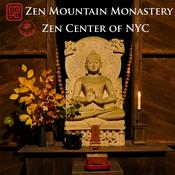Geoffrey Shugen Arnold, Roshi - ZMM - 01/04/2026 - With a new year upon us we all have the chance to start fresh. This is always true because nothing is fixed, everything is subject to change, a truth of the dharma which we can verify for ourselves. We have accumulated experiences, memories, expectations, but those are not fixed either. In this perspective, the new year is auspicious because it is full of possibilities, revealing its potential as we take up life fully, with integrity, commitment and kindness. - From Master Dogen's 300 Koan Shobogenzo (The True Dharma Eye), Case 39 - Jingqing's "Buddhadharma at the New Year"
The post An Auspicious Year first appeared on Zen Mountain Monastery.



